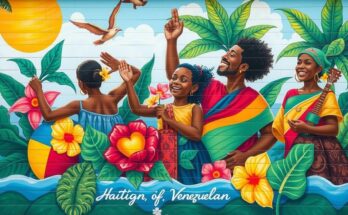Elon Musk’s upbringing in apartheid South Africa at Pretoria Boys High School shaped his political views and personal ideologies. Living amidst social unrest, Musk’s affluent environment contrasted starkly with the turmoil of the times. His commentary on racial policies and recent alignment with Republican ideologies highlights the lasting impact of his childhood experiences on his current perspectives.
Elon Musk’s formative years at Pretoria Boys High School in apartheid South Africa were marked by rampant social inequalities and political unrest. The school echoed English private institutions and encapsulated the dichotomy between affluent white suburbs and the turmoil occurring widely in the country. Jonathan Stewart, Musk’s schoolmate, noted that their comfortable life starkly contrasted with the nationwide chaos, stating, “While the country as a whole was very much in flames and in turmoil, we were blissfully very safe in our little leafy suburbs.”
Born in 1971, Musk has been vocal about his views on South African racial policies, describing the laws of his homeland as “openly racist.” His comments have prompted attention from former U.S. President Donald Trump, who issued an executive order concerning perceived discrimination against white South Africans. The motivations behind Trump’s order and Musk’s potential influence in this regard remain ambiguous, though their connections suggest shared interests.
The critique of land reform laws in South Africa has been central to Musk’s arguments, reflecting his concerns over property rights for a white minority that still controls a significant portion of land. Despite economic disparities and the rise of movements aimed at rectifying these inequities, Musk’s perspective emphasizes ideas of theft and persecution against whites, a stance supported by minority interest groups in the U.S.
Musk’s childhood in a segregated society influenced his worldview, navigating experiences of bullying during his school years and later transitioning to a liberal educational environment at Pretoria Boys. The school’s legacy included progressive ideologies, as former headmaster Malcolm Armstrong defied apartheid norms by admitting Black students and promoting democratic principles.
Although Musk’s political affiliations have shifted, from backing Democratic candidates to aligning with Republican ideologies, his upbringing undoubtedly shaped his perspectives on societal structures. The complex dynamics within his family, particularly with his father, complicate his narrative. Assertions of abuse and strained relationships mark a troubling aspect of Musk’s background, further intertwining with his current ideological stances.
Elon Musk’s early life in South Africa under apartheid significantly influenced his views and political affiliations today. His education at Pretoria Boys High School exposed him to both affluence and societal inequities, as well as the complexities of navigating a racially charged environment. Musk’s vocal critiques of land reform and discrimination laws reflect a complicated understanding of the social dynamics in his home country. Ultimately, his experiences during apartheid and the influence of his family have shaped his current ideologies and public perceptions.
Original Source: www.theguardian.com




